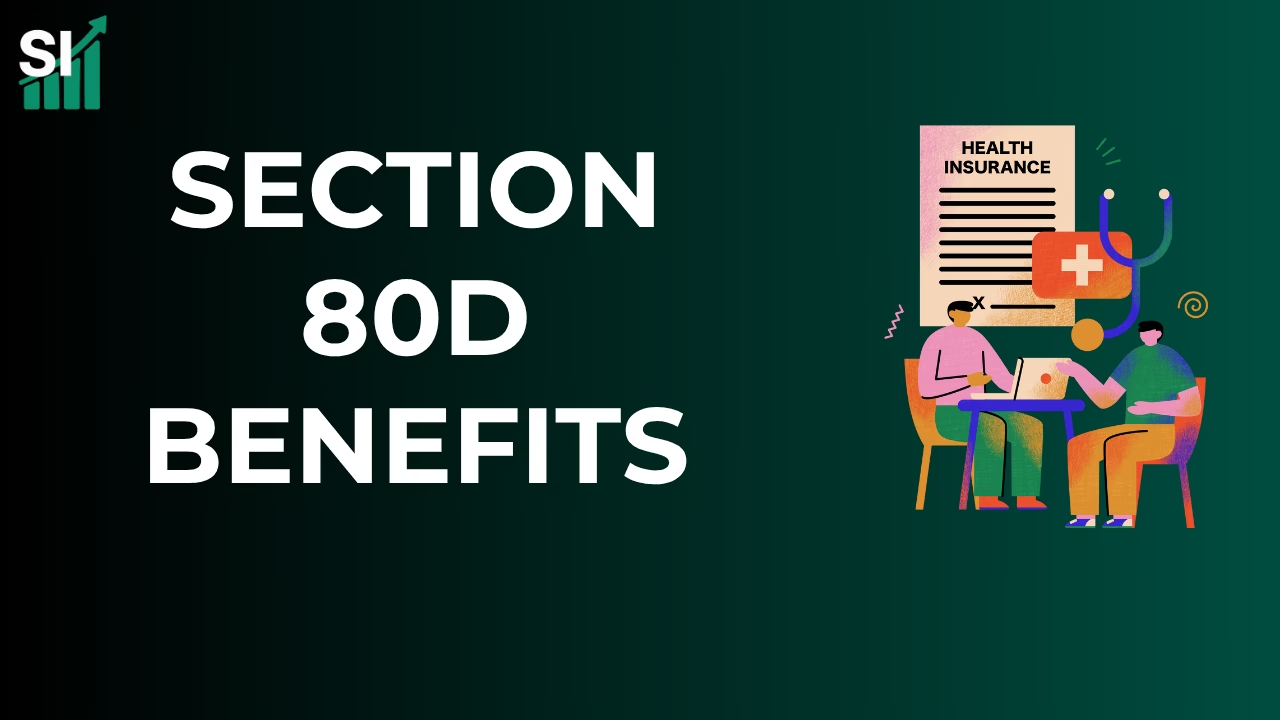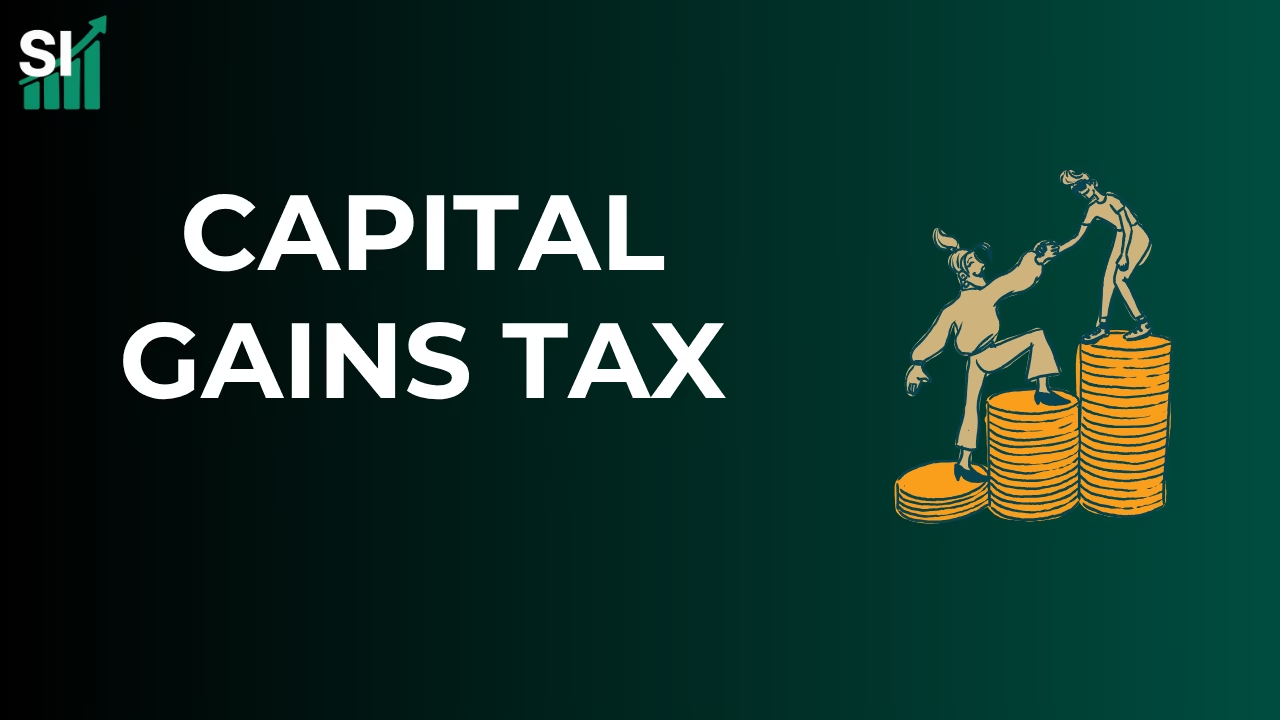Introduction to Section 80D
Section 80D of the Income Tax Act, 1961, plays a crucial role in incentivizing individuals to invest in health insurance. By providing significant tax deductions, this provision encourages people to prioritize their health and well-being and that of their dependents. Health insurance has become increasingly essential in today’s fast-paced world, mainly due to the rising costs of medical treatments and hospitalization. The implementation of Section 80D seeks to alleviate some of the financial burdens associated with healthcare through tax benefits.
Under this section, taxpayers can claim deductions for the premiums paid towards health insurance policies for themselves, their spouses, children, and parents. This approach enhances the accessibility of health insurance and promotes a culture of financial security among individuals and families. A notable aspect of Section 80D is its flexibility, allowing taxpayers to choose from a wide range of health insurance plans tailored to their unique needs. The deductions provided can significantly reduce the overall income tax liability for individuals, making it an attractive proposition for many taxpayers.
In addition to the standard tax deductions available, Section 80D also addresses preventive health check-ups, further emphasizing the importance of maintaining good health. Taxpayers can claim deductions on expenses incurred for preventive health services up to a specified limit. This provision primarily aims to foster proactive health management, as individuals are encouraged to undertake regular health check-ups and screenings. Overall, Section 80D represents an essential legislative measure that not only serves to alleviate financial strain in times of medical emergencies but also promotes the ethos of health insurance as a fundamental necessity in today’s society.
Topics of Discussion
Who is Eligible?
Section 80D of the Income Tax Act provides significant tax benefits to individual taxpayers and Hindu Undivided Families (HUFs) for health insurance premiums paid. This provision encourages taxpayers to secure their health by investing in health insurance, thereby fostering a sense of responsibility towards health management. To qualify for deductions under this section, certain criteria regarding eligibility must be met.
Primarily, the individuals eligible to claim deductions include resident individuals and HUFs. A resident individual is defined as someone who has been residing in India for a specified period as outlined by the Income Tax Act. Therefore, both salaried and self-employed individuals can reap the benefits of Section 80D, provided they are responsible for paying the premiums for their health insurance.
It is important to note that the scope of individuals who can be insured under Section 80D extends beyond the taxpayer. The policy can cover not only the taxpayer but also their family, which typically includes the taxpayer’s spouse, children, and parents. In cases where the parents are senior citizens, a higher deduction can be claimed, emphasizing the importance of securing health insurance for these individuals due to the increased health risks they may face.
Moreover, if the taxpayer or their spouse is below the age of 60, they are eligible for deductions up to a certain limit; for senior citizens, this limit increases, allowing them greater savings. This aspect of Section 80D encourages taxpayers to consider comprehensive health coverage for their families, thereby ensuring better financial protection against medical expenses. Understanding these eligibility criteria is essential for individuals and families looking to maximize their tax benefits through health insurance policies.
Deduction Limits Based on Age
Under Section 80D of the Income Tax Act, taxpayers can avail of significant tax benefits on health insurance premiums paid for themselves, their spouses, dependent children, and parents. The amount of deduction permissible is determined by the age of the insured individuals. This structured approach aims to provide enhanced benefits for senior citizens who may have a higher risk of health-related expenses. Understanding these limits is crucial for maximizing tax savings associated with health insurance.
For individuals below the age of 60, the maximum deduction allowed is ₹25,000 per financial year for premiums paid on health insurance. This limit includes coverage for self, spouse, and dependent children. Additionally, if taxpayers choose to insure their parents who are also under the age of 60, they can claim an additional deduction of ₹25,000, bringing the total potential deduction to ₹50,000 for families with younger dependents and insured parents.
When it comes to senior citizens, defined as individuals aged 60 years or above, the maximum deduction limit increases. For premiums paid for self, spouse, and dependent children, the deduction limit rises to ₹50,000. Furthermore, if the insured parents fall into this senior citizen category, an additional claim of ₹50,000 applies. Consequently, this results in a total allowable deduction of up to ₹1,00,000 for taxpayers who insure themselves and their senior parents.
It is essential to ensure that the health insurance policy covers a range of medical expenses, including preventive health check-ups, as these expenditures can also be claimed under Section 80D. The integration of age-based deduction limits underscores the importance of investing in health insurance, particularly as individuals approach retirement and may face increased health risks. Understanding these limits not only fosters responsible financial planning but also enhances overall tax efficiency.
Combined Maximum Deductions
Section 80D of the Income Tax Act provides valuable deductions on premiums paid for health insurance, making it an essential tool for taxpayers seeking to minimize their tax liability. The deduction limits vary depending on the age of the insured individuals—namely, the taxpayer, their spouse, children, and parents. Understanding these combined maximum deductions is crucial for effective tax planning.
For taxpayers under the age of 60, the deduction for health insurance premiums is capped at INR 25,000. However, if the taxpayer or their parents are senior citizens (defined as individuals aged 60 years or older), the maximum deduction increases to INR 50,000. This means that if both the taxpayer and their parents are seniors, they can benefit from a combined deduction of up to INR 1,00,000—INR 50,000 for the taxpayer and INR 50,000 for the parents, assuming all premiums are paid.
To illustrate, consider a taxpayer aged 45 who pays INR 20,000 for their health insurance and an additional INR 50,000 for their parents’ health insurance, who are both senior citizens. The total deduction claimable would be INR 70,000 (INR 20,000 + INR 50,000), which is lower than the maximum allowed limit. Conversely, if the taxpayer had opted for a health insurance policy worth INR 30,000, they could claim a total of INR 80,000, as they would still be within the combined limit of INR 1,00,000.
In cases where only one party is a senior citizen, the deductions can still be maximized, showcasing the flexibility offered by Section 80D. Therefore, incorporating health insurance for oneself and aging parents not only provides financial security but also serves as a strategic approach to tax planning, allowing taxpayers to optimize available deductions effectively.
Additional Deductions for Medical Expenses
The Indian Income Tax Act under Section 80D offers taxpayers valuable benefits when it comes to health insurance premiums. Additionally, it provides supplementary deductions for certain medical expenses, particularly relevant for preventive health check-ups and the medical needs of uninsured senior citizens. Understanding these provisions can play a significant role in effectively managing health care costs.
For preventive health check-ups, the Income Tax Act allows a deduction of up to ₹5,000 per year. This amount is included within the overall ceiling of ₹25,000 (or ₹50,000 for senior citizens) for health insurance premiums under Section 80D. Taxpayers are encouraged to utilize this deduction, as preventive health measures can lead to better health outcomes while reducing future medical expenses. Regular check-ups can help in early detection of illnesses, thus improving the quality and longevity of life.
In addition to deductions for preventive health check-ups, Section 80D outlines provisions for medical expenses incurred on behalf of uninsured senior citizens. Taxpayers can claim a deduction of up to ₹50,000 for medical expenditure related to senior family members. This is particularly significant given the rising health care expenses associated with aging. This deduction aims to provide financial relief to families supporting their elderly members while encouraging individuals to ensure adequate health care coverage.
It is essential to maintain proper documentation of all payments made for health insurance premiums and medical expenses. Taxpayers must retain receipts, invoices, and any relevant records as proof when claiming these deductions. By understanding and utilizing these additional deductions under Section 80D, taxpayers can mitigate their tax liability, while simultaneously promoting health and well-being within their families.
Conditions for Claiming the Deduction
To avail deductions under Section 80D of the Income Tax Act, certain conditions must be met. Firstly, the taxpayer must ensure that the health insurance premium is paid through a permissible method. Acceptable payment modes include cheque, net banking, credit or debit cards, or mobile wallets. Premium payments made in cash exceeding INR 10,000 are not eligible for deductions, thus emphasizing the need for documentation and traceability in financial transactions.
Moreover, the eligibility of the insured person is crucial when claiming these deductions. Taxpayers can claim deductions for health insurance policies taken for themselves, their spouses, children, and parents. The age of the family members insured plays a significant role: for premiums paid for a policy covering individuals aged 60 years or above, a maximum deduction of INR 50,000 is permitted. This provision is designed to provide additional tax relief for senior citizens, as they often have higher health-related expenses.
It’s essential to note that deductions are not available for group insurance premiums. Health insurance policies purchased by employers for their employees fall into this category, hence, the taxpayers cannot claim deductions on such premiums. Additionally, taxpayers should keep in mind that any necessary documentation regarding the health insurance premium payment must be maintained, as the Income Tax Department may require evidence for verification during assessments or audits.
Understanding these conditions is vital for taxpayers looking to maximize their benefits under Section 80D. By ensuring the correct payment methods, recognizing eligible relations, and adhering to regulations regarding insurance premiums, taxpayers can effectively claim deductions and enhance their financial planning for health-related expenses.
Documentation Requirements
When it comes to availing the tax benefits under Section 80D of the Income Tax Act, proper documentation is an essential element. The section provides deductions on premiums paid for health insurance policies for oneself, one’s spouse, children, and parents. To successfully claim these deductions, it’s crucial to retain specific documents that validate the expenditures for which the claim is made.
The primary documentation required includes the premium payment receipts. These receipts serve as proof of payment and are vital when filing your income tax return. It is advisable to maintain both physical and electronic copies of these receipts to ensure that you have them readily available for reference if needed. Payments can typically be made via various modes, including online transfers or checks, all of which should be documented accordingly.
In addition to the premium receipts, it is essential to keep track of medical bills and receipts for any preventive health check-ups. Section 80D allows for deductions up to a certain limit specifically for preventive health check-ups; thus, retaining these bills is beneficial. Properly organized documentation can prevent misunderstandings or mismatches during assessment or scrutiny, ensuring a smoother experience with the tax authority.
Furthermore, it is advisable to document the relationship between the insured individuals and the taxpayer. For instance, if the premium is paid for parents or dependents, maintaining appropriate identification documents to confirm the relationship is prudent. This reinforces the validity of the claim and aids in establishing eligibility for deductions.
Ultimately, meticulous record-keeping of all relevant documentation not only facilitates the claiming of tax benefits under Section 80D but also helps ensure compliance with the regulatory framework laid down by the tax authorities. By adhering to these documentation requirements, taxpayers can navigate the process with efficiency and ease.
How to Claim the Deduction
To claim the tax benefits under Section 80D of the Income Tax Act, taxpayers have two primary avenues: submitting their health insurance expenses through their employer or claiming the deductions directly when filing their Income Tax Return (ITR). Understanding these avenues is crucial for a seamless claiming process.
If you wish to submit expenses through your employer, it is essential to notify them regarding your health insurance premiums paid during the financial year. Employers often include a section in their payroll system where you can input your deductible expenses. It is advisable to provide all necessary documentation, such as receipts for the premiums paid, to facilitate a smooth processing of your claim in their system.
On the other hand, if you prefer claiming the deduction directly while filing your ITR, it is imperative to keep a detailed record of all health insurance premium payments. Ensure that you possess valid receipts and proof of payment, as these will be required when filling out your tax return. The amount eligible for deduction varies; for individuals, a deduction of up to ₹25,000 can be claimed, while individuals above 60 years can claim up to ₹50,000. Additionally, if you pay premiums for your parents’ health insurance, you can claim an extra deduction, which boosts the total limit depending on the parents’ age.
When filing your return, ensure that you accurately fill in the appropriate section regarding your deductions under Section 80D. Utilizing tax preparation software or consulting a tax professional can also enhance your accuracy. It is always advisable to be aware of the deadlines associated with income tax filings to ensure timely submission. Properly following these steps will help you maximize your deductions and ensure compliance with tax regulations.
Conclusion and Tax Planning Tips
Section 80D of the Income Tax Act offers significant benefits for individuals and families seeking to secure health insurance coverage. This provision allows taxpayers to claim deductions for premiums paid towards health insurance, thereby reducing taxable income and promoting financial well-being. By understanding the nuances associated with this section, individuals can effectively plan their taxes while ensuring adequate health coverage for themselves and their dependents.
Taxpayers should strategically utilize the limits set by Section 80D, which include deductions of up to ₹25,000 for premiums paid for self, spouse, and dependent children. Further savings can be realized, particularly for senior citizens, where the deduction cap extends to ₹50,000. This encourages families to consider purchasing health insurance for their parents, reflecting a holistic approach to health coverage planning.
To maximize tax benefits, it is prudent for taxpayers to maintain clear records of premium payments, so as to substantiate claims during tax filing. Additionally, choosing comprehensive health insurance plans that provide not just basic coverage but also cover pre-existing diseases, maternity benefits, and annual check-ups can lead to a more advantageous positioning in terms of health preparedness and financial safety.
Engaging with a tax advisor or financial planner can prove invaluable. An expert can offer tailored advice on optimizing deductions related to health insurance and guide individuals on choosing suitable plans that align with their health needs and fiscal goals. Furthermore, being proactive in evaluating policy benefits and premiums annually will empower taxpayers to make informed decisions.
In conclusion, leveraging Section 80D requires strategic financial planning and an understanding of health insurance products. By doing so, taxpayers can not only secure their family’s health but also make the most out of the available tax benefits.
Further Reading
Capital Gains Tax Explained: 5 Important Differences Between Short-Term & Long-Term
Learn the 5 biggest differences between short-term and long-term capital gains tax. Smart strategies to reduce tax burden and boost returns in 2025.
Read More →

